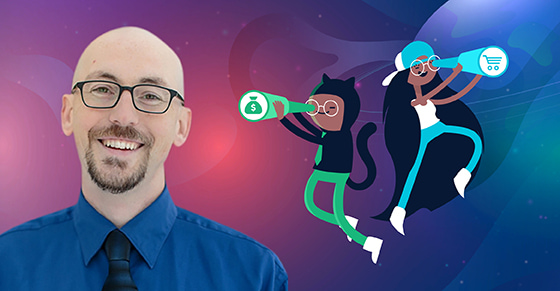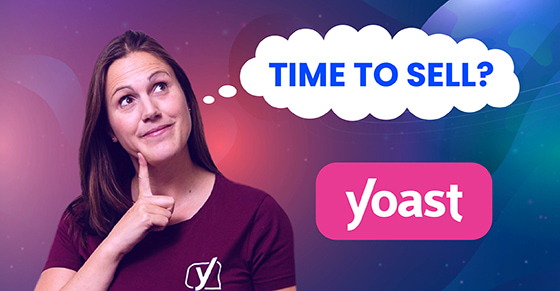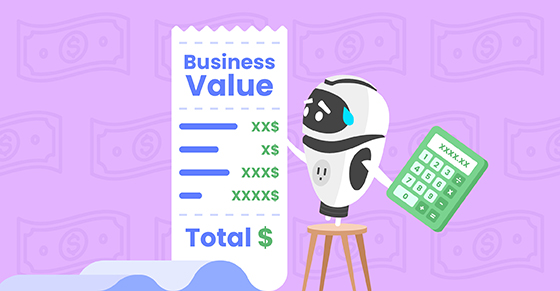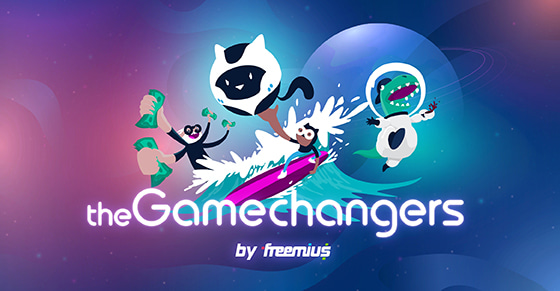|
|
In 2020, Zach Tirrell was tasked by Modern Tribe to help prep The Events Calendar for an acquisition, despite owning no part of the business. After Liquid Web took over the reins, the lessons Zach learned about WordPress acquisitions and taking a business to market saw him become an integral member of their M&A team.
In the first three episodes of The Gamechangers, we were introduced to the world of WordPress acquisitions through the eyes of buyers and sellers.
While Marieke van de Rakt shared her experience of selling Yoast to Newfold Digital, WordPress acquisitions entrepreneur Syed Balkhi explained how to navigate a successful exit, and Chris Lubkert and Artur Grabowski discussed the importance of networking to find the perfect buyer.
But, as comprehensive as those interviews were, we hadn’t interviewed someone who’d explicitly discussed their experience as both acquirer and acquiree.
But thanks to Zach, we’re changing that 😉
Zach’s experience is unique to the series and M&As in general. He’s never owned or sold a business and thus has had no material financial stake in participating in WordPress acquisitions (besides a salary). Below, he shares the thrills and chills of a journey as both buyer and seller in WordPress acquisitions — from going through an external acquisition as an employee at The Events Calendar to participating in Liquid Web’s mergers and acquisitions.
But first, let’s rewind:
How and Why The Events Calendar Was Sold
Before the merger with Liquid Web, Zach was the Product Lead at The Events Calendar for nearly six years. While the partners at Modern Tribe (who founded the product in 2010) helped him with the larger projects, Zach — for the most part — ran day-to-day operations independently.
As for the decision to sell, he believes Modern Tribe’s founders put events in motion after the company’s latest retreat.
“They realized how much The Events Calendar had grown, judging by the number of faces they didn’t know,” Zach explains. “However, their decision to sell was by no means driven by estrangement or disconnection. Instead, they realized it would be in The Events Calendar’s best interest to secure a future with new ownership that could take it to new heights. Basically, it was the right time to cash in and see the return on a ten-year investment.”

Learning About the Planned Sale of The Events Calendar
In 2020 and during a global pandemic, Modern Tribe’s owners told Zach they wanted to part with the product and team he was managing.
In truth, this didn’t come as much of a surprise — they’d shared their intention to sell in many conversations with Zach. And, in these discussions, he was often asked what his ideal outcome would be.
Though he was somewhat prepared, the impending sale was nerve-wracking for a few reasons. For one, Zach didn’t have much of a say because he didn’t own any part of the business. For the other, the potential disruption of processes and procedures — and how it would affect his 50 co-workers — was daunting.
But despite his concerns, Zach knew that the looming sale offered an opportunity to take The Events Calendar to new levels.
We bought into a vision that was pitched to us by Liquid Web during the acquisition process. I believed in it then, and I believe in it now.
The vision? While Liquid Web wanted The Events Calendar to continue operating as usual, they also wanted to encourage collaboration with other businesses under their StellarWP umbrella to improve existing products and operations.
“The excitement helped us through that whole procedure. It’s a lot of work, selling a business: Late nights, spreadsheets, opening your business to deep inspection, scrutinizing every decision you’ve made.”
But more than securing a means of advancing The Events Calendar, Zach and Modern Tribe had a bigger concern about committing to an acquisition.
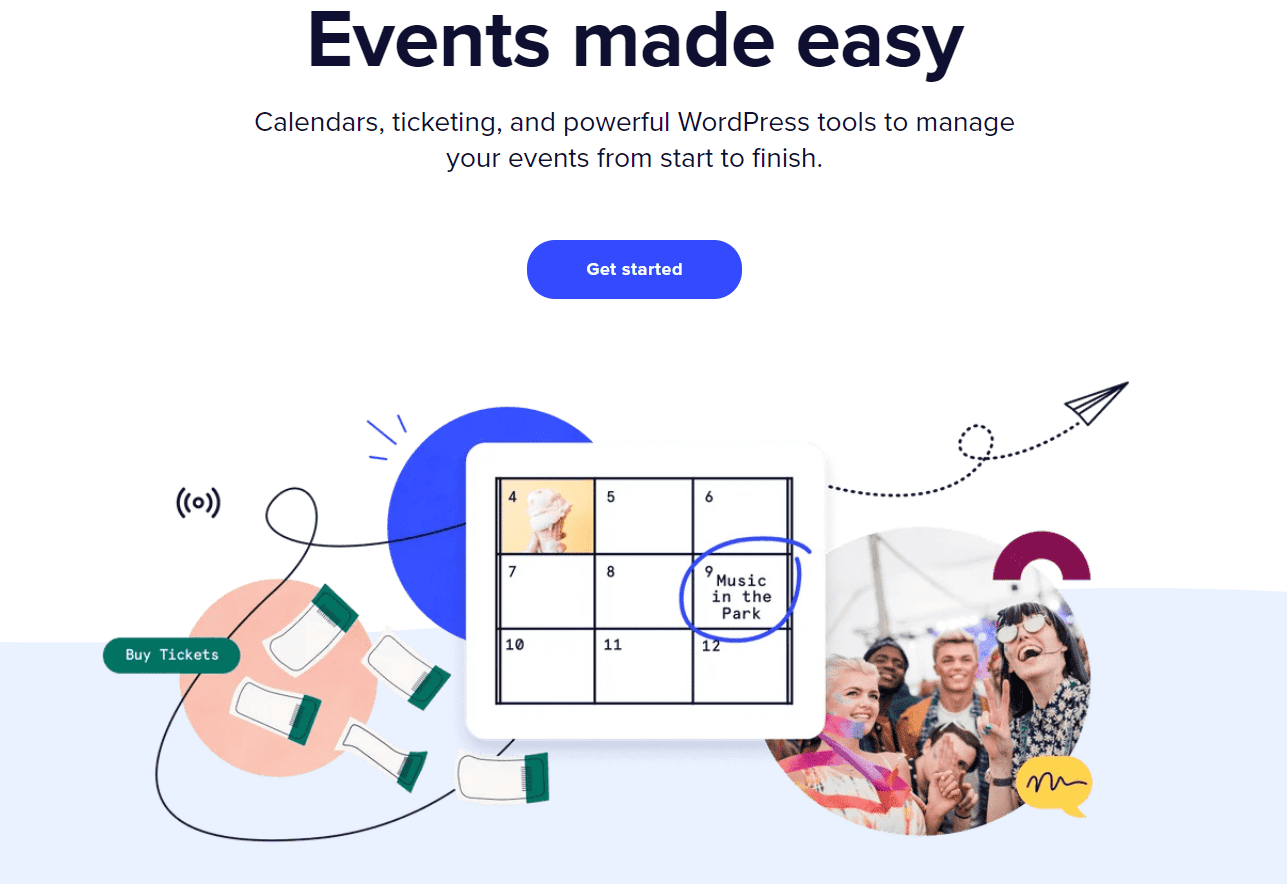
Finding the Right Buyer for The Events Calendar
Zach echoes what our other Gamechangers have stressed: When you’re trying to find a buyer for your company, profits come second. What matters most is that:
- You feel confident the buyer shares your vision for the future of the product.
- The people you work with keep their jobs once you hand over the reins.
This can only materialize if all parties involved are on the same page.
Both buyers and sellers need to think about what they’re trying to achieve with an acquisition. Most founders are likely in a place where they feel that they’d like to reinvest their profits to create a new product or even change careers. On the other hand, buyers often don’t have a vision for the company or product post-acquisition other than seeing how much money they can make once they take over.
It’s a harsh truth that many buyers aren’t interested in a company because they feel invested or passionate about the product. Instead, buyers are often looking to move into a position that gives them more clout and allows them to do bigger things (while making more money).
That mindset didn’t work for Zach and the founders of Modern Tribe. So, what did ‘buying for the right reasons’ look like for The Events Calendar?
A Sizeable Acquisition Offer and WordPress Know-How
Although it was important for Modern Tribe to find an acquirer who was interested for the right reasons, a substantial offer was also critical. The Events Calendar is a large and popular WordPress product with a team that powers several plugins, so entertaining a smaller buyer was never going to be an option.
An external financial investor or similar acquirer wouldn’t have worked because a shallow knowledge of WordPress could easily have disrupted the product’s growth trajectory and roadmap. A buyer who was au fait with the WP space, however, would understand the ecosystem as well as the importance of preserving the team.
The WordPress M&A marketplace is an open-source one. The biggest asset of a business like The Events Calendar is its employees, who have a proven track record of building successful WordPress products that remain relevant for a long time.
But as noble as job protection is, getting a lucrative offer from a trustworthy buyer is easier said than done. So how does one ensure that it materializes?
Navigating WordPress Acquisitions Behind Closed Doors
When a company is going through an acquisition, one of the last things founders want to do is spook their team. It takes time for employees to grasp the intricacies of a product, and the skills and knowledge they accrue can’t be replaced easily.
If employees quit because they’re concerned about job security or a potential culture shift, the company’s M&A value will likely decrease, along with the pool of interested buyers.
As such, Zach and the partners decided to disclose the acquisition only once a deal had been struck.
“If we’d created uncertainty in early 2020 amidst the outbreak of the COVID-19 pandemic, we’d be placing a lot of unnecessary stress on the people that work for us,” Zach says. “The partners and I resolved to continue with our day-to-day operations while facilitating the acquisition in private.”
A decision that could see Zach and Modern Tribe’s partners keeping mum for some time — it’s no secret that WordPress acquisitions don’t take place overnight.
The process is long — often arduous — and founders need to ensure that all of their ducks are in a super-straight row before even considering going to market. For The Events Calendar, a big challenge was separating it financially from Modern Tribe so that it could be evaluated as a business in its own right.
Maximizing The Events Calendar’s Value
Apart from keeping the acquisition quiet, there were aspects that had to be relooked to make sure that:
- The Events Calendar was polished up and restructured in a way that would make it as valuable as possible in the M&A market.
- any loopholes that could threaten the retrenchment of employees were firmly closed.
Interestingly enough, a relatively insignificant product in The Events Calendar’s suite turned out to be one of the biggest hurdles to both resale value and ensuring job security.
Why Loxi Was Put Under Scrutiny
The Events Calendar created a SaaS (software as a service) product called Loxi in 2017, around the time Gutenberg was in beta.
Back then, it was uncertain if WordPress would incorporate full site editing to accommodate users who could be lost to platforms like Shopify or Squarespace. Essentially, Loxi was a backup plan for The Events Calendar to move into SaaS if WordPress lost market share.
“Despite everything we invested in Loxi to ensure that it was both stable and affordable to run, we struggled to find market share for it. By the end of 2020, looking three years back, it was quite shocking to notice that we’d seen no ROI on something we’d put a lot of time and money into.”
In light of this, Zach prepared for the acquisition by readjusting the unit structure so that efforts weren’t being wasted. This meant that the team responsible for Loxi was disbanded and repositioned to other projects.
“We reorganized operations around Loxi so that it was formally in maintenance mode,” Zach explains. This ensured that no employees would be considered superfluous to the daily operations of The Events Calendar when a new buyer took over.
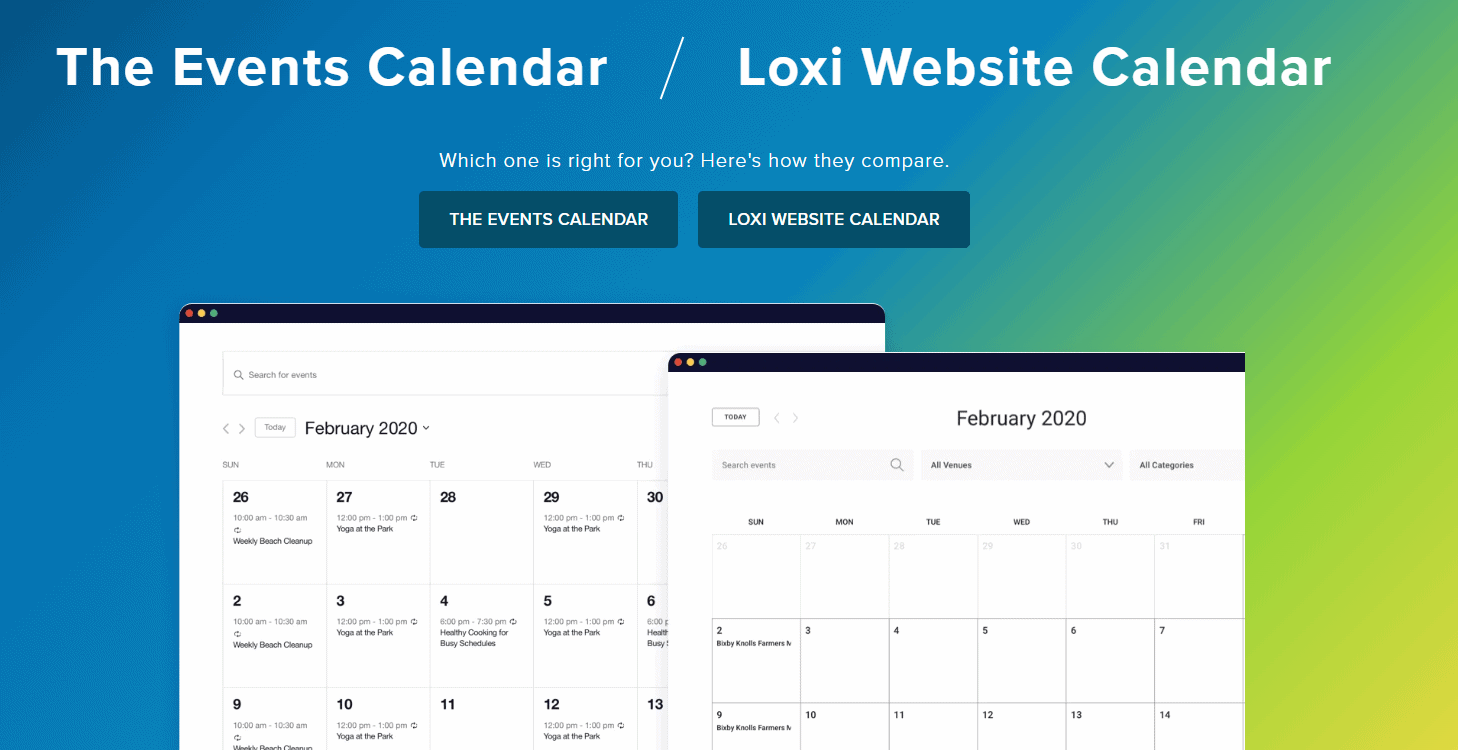
Clinching the Deal: Moving Forward With the Liquid Web Acquisition
For Zach, being involved with the acquisition process was a lonely time professionally.
I still had the normal day-to-day with my team, but all the while there was this huge thing happening in the background that none of them knew of.
By late 2020, Zach and Modern Tribe had met with various interested parties and had gotten “some serious bites”. But after their conversation with Liquid Web, they were confident they’d found the right buyer.
But shifting business strategies to accommodate Liquid Web — such as postponing release plans for new updates — while not raising suspicions was stressful and tricky. “It was easier to compartmentalize early on in the process. But when we decided to move forward with Liquid Web, the duality of it all became challenging to navigate,” Zach recalls.
Two weeks before closing the deal, Zach and Modern Tribe disclosed the sale to the team. Even so, there was still one hurdle to navigate…
Lingering Concerns About Selling The Events Calendar to Liquid Web
The Events Calendar is a distributed team with full-time and part-time employees, whereas Liquid Web is a fully on-site team with an office in Michigan. There are definite cultural differences here, and it’s something that The Events Calendar’s employees would be aware (and possibly wary) of.
Zach says announcing the acquisition to 50 people on a Zoom call and hoping they would buy into the vision was daunting. “All of The Events Calendar’s employees have a different, custom relationship with the company. With the announcement, we had to make sure that everyone would believe that the acquisition would make us bigger and better, not crush our spirit.”
So how did the acquisition pan out, and did it create any new opportunities for expansion under Liquid Web’s umbrella?
Why the Acquisition Was a Huge Success

To Zach’s relief, Liquid Web made good on their guarantee to preserve The Events Calendar’s culture and structure, allowing them to operate as an independent business within the empire.
Being acquired also offered new opportunities. Liquid Web’s acquisition strategy meant that The Events Calendar team could cross-pollinate with other businesses in their portfolio. Suddenly, Zach had found a peer in Matt Danner and the iThemes crew.
”We could talk strategy with each other, cross-sell each other’s WordPress products, and collaborate on things that are bigger than us as individual companies.”
Putting the above aside, did the actual day-to-day or culture change in comparison to Modern Tribe?
On Liquid Web and New Management
As it turns out, not really.
My day-to-day isn’t wildly different. When we announced the acquisition, I joked with my team that I was the only one who was getting a new boss.
Zach now reports to Joe Oesterling, CTO at Liquid Web. “The big difference is learning what Joe values versus what the partners of Modern Tribe valued, understanding what he’s looking for when he checks in or we have a meeting and making sure that I give him information about areas that we’re succeeding or struggling in so that he knows how he can help. Luckily, he allows us to maintain a lot of independence.”
Zach repeats how much of an impact Matt Danner has had on his professional life. Modern Tribe’s partners were agency-minded, which meant they had to be primed for ‘product talk’ when Zach wanted to discuss strategy or new developments. While they could gauge what Zach was trying to get across, he finds it refreshing to have a colleague who shares his train of thought regarding WordPress products.
“Every day when Matt wakes up, he thinks about what it takes to run a WordPress software business,” Zach jokes. “He’s thinking about the next potential win for iThemes, what the latest version of WordPress means to them — things like that. We developed a very good relationship very quickly because we have a similar professional experience and share challenges that we can support each other on.”
But aside from the happy turn of events for Zach and The Events Calendar, the question remains: What has Zach’s involvement been in participating in WordPress acquisitions?
Zach’s Role in Liquid Web’s WordPress Acquisitions
Besides his experience with coding and software, Zach’s also no stranger to managing people and running the day-to-day operations of a medium-sized business. This means he can eloquently communicate his ‘business’ knowledge to those of us who are less familiar with the corporate side of the ecosystem.
Case in point: Zach’s clear explanation of Liquid Web’s WordPress acquisitions process. This is valuable for developers as it offers a glimpse into how big companies facilitate M&A deals:
- Chris Lema (Liquid Web’s former VP) would spark many of the initial conversations due to his clout in the WordPress community. Occasionally, Joe Oesterling also initiates these exchanges. See Chris discuss the most common mistakes developers make during WordPress acquisitions here.
- Once the stage is set for a potential acquisition, Zach and Matt Danner start discussions with the seller before diving into a detailed evaluation of codebases, invoicing and eCommerce systems, cash flow, support, and marketing.
- After Zach and Matt’s evaluation, Liquid Web’s finance team tracks the company’s cash flow and sets up models to determine whether a growth strategy exists or can be implemented post-acquisition.
- Should the forecast look agreeable, Liquid Web’s legal team then analyzes existing partnerships, contracts, and deals to set up a detailed purchase agreement.
- Great care is also taken to ensure that legal compliance, HR laws, and the like are abided by. This avoids WordPress acquisitions that could land Liquid Web in hot water.
If — heaven forbid — the seller was hit by a bus the day after we closed the deal, Matt and I need to be confident that we know enough about the business to take over on the fly.
“Of course, our intention in most deals is not to take over a company from existing management,” Zach says. “But we also have it in the back of our heads that we should know the business well enough to step in if they need our help.”
According to Zach, Liquid Web also makes sure that the seller doesn’t view the process as an interrogation. Instead, they try to make the exchange as positive as possible so that all parties are comfortable during the process.
An Ode to Code: Liquid Web’s Main Criteria for WordPress Acquisitions
Zach gets straight to the point: “Make sure your books are in order. You also need to have solid processes in place for coding and customer support.
We want to buy products people love, not ones that they hate!
Remember I said Zach is fluent in various WordPress disciplines? His WordPress software development experience comes in handy here because he can assess the quality of the code, its modularity and scalability, and how easy (or hard) it would it be to continue the product’s code development. These technical insights are critical when it comes to the acquisitions of software companies.
The Characteristics of Good Software
Here are Zach’s non-negotiables for creating quality WordPress software:
“If you have more than one dev on your team, you should definitely be reviewing each other’s code. You need to have WordPress code standards in place. Also, regularly doing automated testing helps the code to grow and ensures that it isn’t stuffed with technical debt. Solid, object-oriented practices that are done correctly help us to test individual components. This is high-level, technical stuff, but it should be obvious for developers.”

On top of standard best practices, you need to take an honest look at your product and ask whether your creation can stand the test of time and stay ahead of the curve, or if it has a shelf life (not the same as a sell-by-date 😜 Sorry). Acquirers want to add products to their suite that can complement their existing inventory.
But not every product under M&A evaluation will have been coded well, so what are the typical mistakes that Zach sees developers making?
Sloppy, Ill-Considered WordPress Code
Veterans like Zach can spot bad WordPress software from a mile away. When he opens a WordPress code library, he quickly gauges whether the developer has kept their house in order. These are some of the common factors that help Zach determine if the code meets his standards:
- The use of consistent function names, spacing, and brackets.
- Evidence of appropriate variable escape analysis so that software can be translated when the developer outputs it to a user.
- Does the software conform to WordPress standards by using things like actions, hooks, and filters?
- Is the code built to keep up with growth, or is it amateurish?
Zach finds that there is often a big difference between WordPress products built as solo projects versus those created in a team. When developers work together, there is greater accountability to ensure code uniformity. A standard code framework also makes it easier to bring new developers into the mix, which speeds up onboarding.
At What Stage of the Acquisition Does Liquid Web Review the Code?
“Generally, we look at code right away.”
Instead of meeting with a seller before examining the software, Liquid Web will do due diligence as soon as they consider reaching out.
Zach will download and open up a plugin to see if:
- there is evidence of automated testing.
- it uses object-oriented programming.
- there are PHP code sniffer rules in place.
“If it doesn’t pass our ‘sour milk sniffing test’ at this point, we’re going to be concerned about things like whether the developer is fire-selling the product, which usually makes us far less inclined to reach out.”
Note: Being able to inspect the code is only possible because of WordPress products being open source. In closed-source acquisitions, code reviews can only be done after signing an LOI (Letter of Intent).
If Liquid Web confirms that the developer has built the product with due care, they’ll do a full, deep WordPress code review later in the acquisition process to establish things like whether libraries are GPL-compliant.
But do developers need to wait for Liquid Web to make the first move, or can they reach out to pitch their product directly?
Grab a free copy of our Cheat Sheet for
Selling Plugins and Themes
A growth roadmap with concise, actionable tips for every milestone of WordPress product development.

How to Explore Potential WordPress Acquisitions Through Liquid Web
“We’re almost always discussing WordPress acquisitions, so feel free to reach out to us. Truth be told, the answer is ‘no’ 90% of the time because we obviously can’t afford to buy everything we like. But you’ll never know if you don’t try, right?”
Being a WordPress company, Liquid Web’s software interests are firmly embedded in our space. But what kind of products are they after?
We’re interested in plugins that businesses use either as a fundamental component of their success or to increase their success.
If you’re interested in selling, take a look at Liquid Web’s umbrella company StellarWP to determine if your product is a good fit for them. Don’t be discouraged if your product doesn’t align with Liquid Web’s objectives. Check out other “known” acquirers like Awesome Motive — there’s a reasonable chance that one of these big players will be looking for products that play in the niche that you service.
Apart from having your affairs in order and keeping your code pristine, what is Zach’s departing pearl of wisdom for developers who are working towards an exit?
Know Your Financials
Find out where you’re spending versus earning money. Based on this, you can establish whether you are currently profitable or not, and determine your future path to profitability. I don’t mean that you should overlook the technical details and quality of your product, of course. But if you’re working towards an exit, you should definitely have a firm grasp on your financial situation and your numbers.
While Zach’s dual M&A experience means that he understands the priorities of both the buyer and the seller, it is perhaps his position as a non-owner that holds the most value for many readers. Many WordPressers are employees — not founders — and with the M&A trend showing no signs of slowing down, there’s every chance that a few of us will have to navigate our company changing hands in the future.
If you enjoyed Zach’s insights, be sure to check out our recent The Gamechangers articles.

